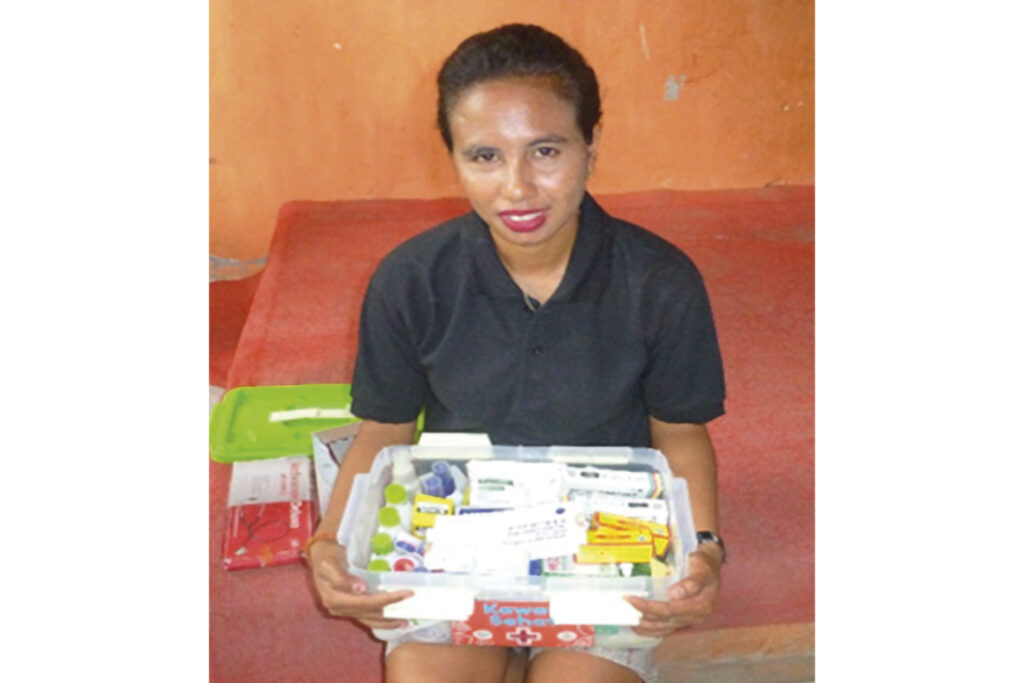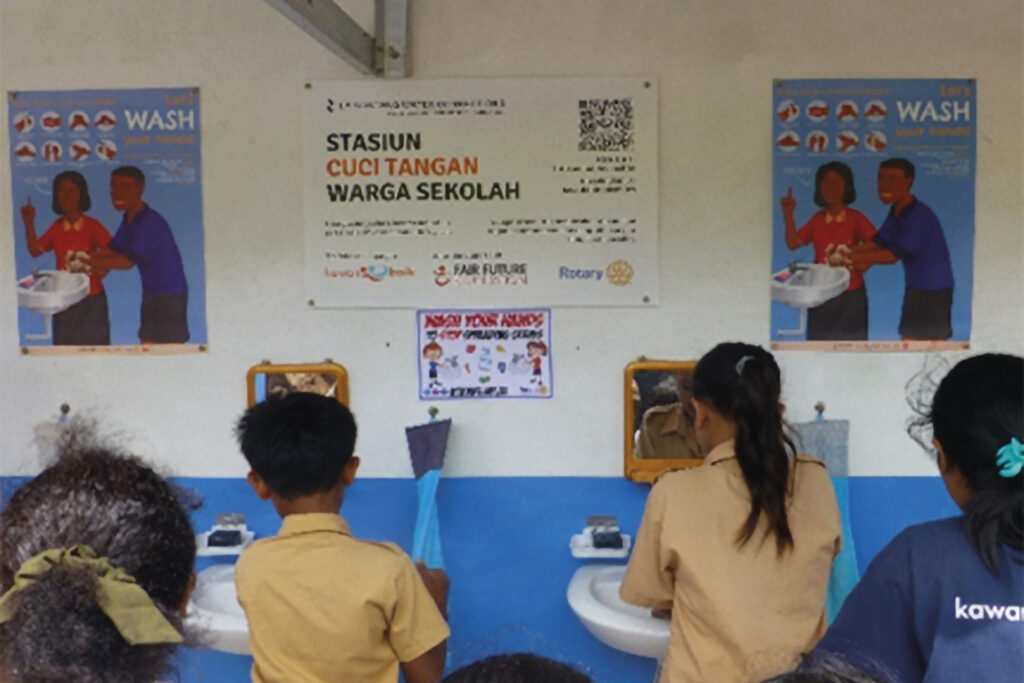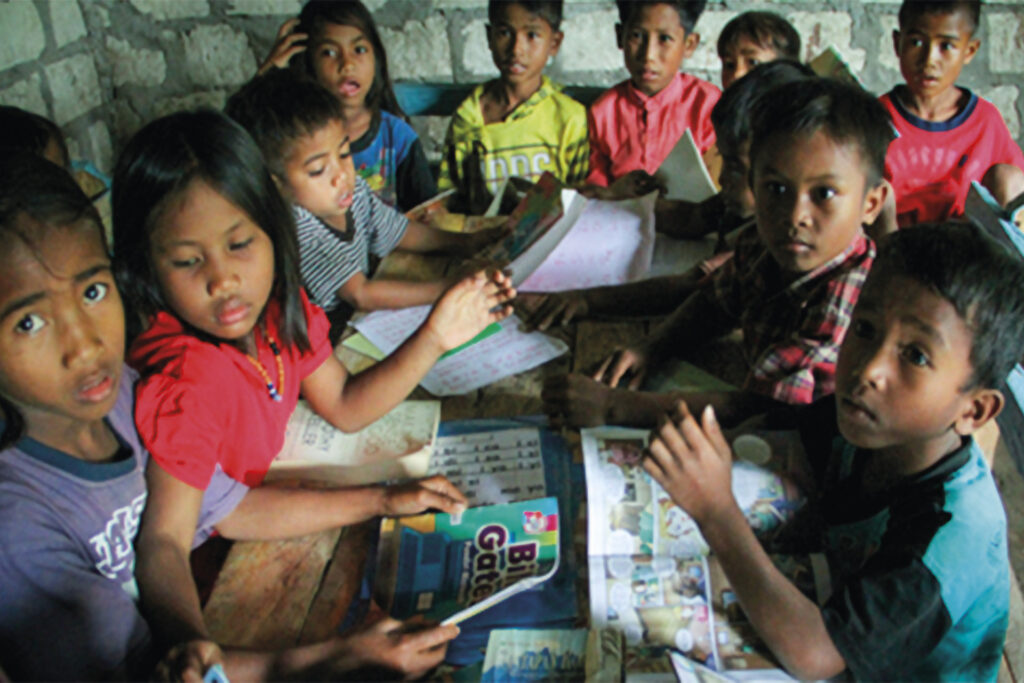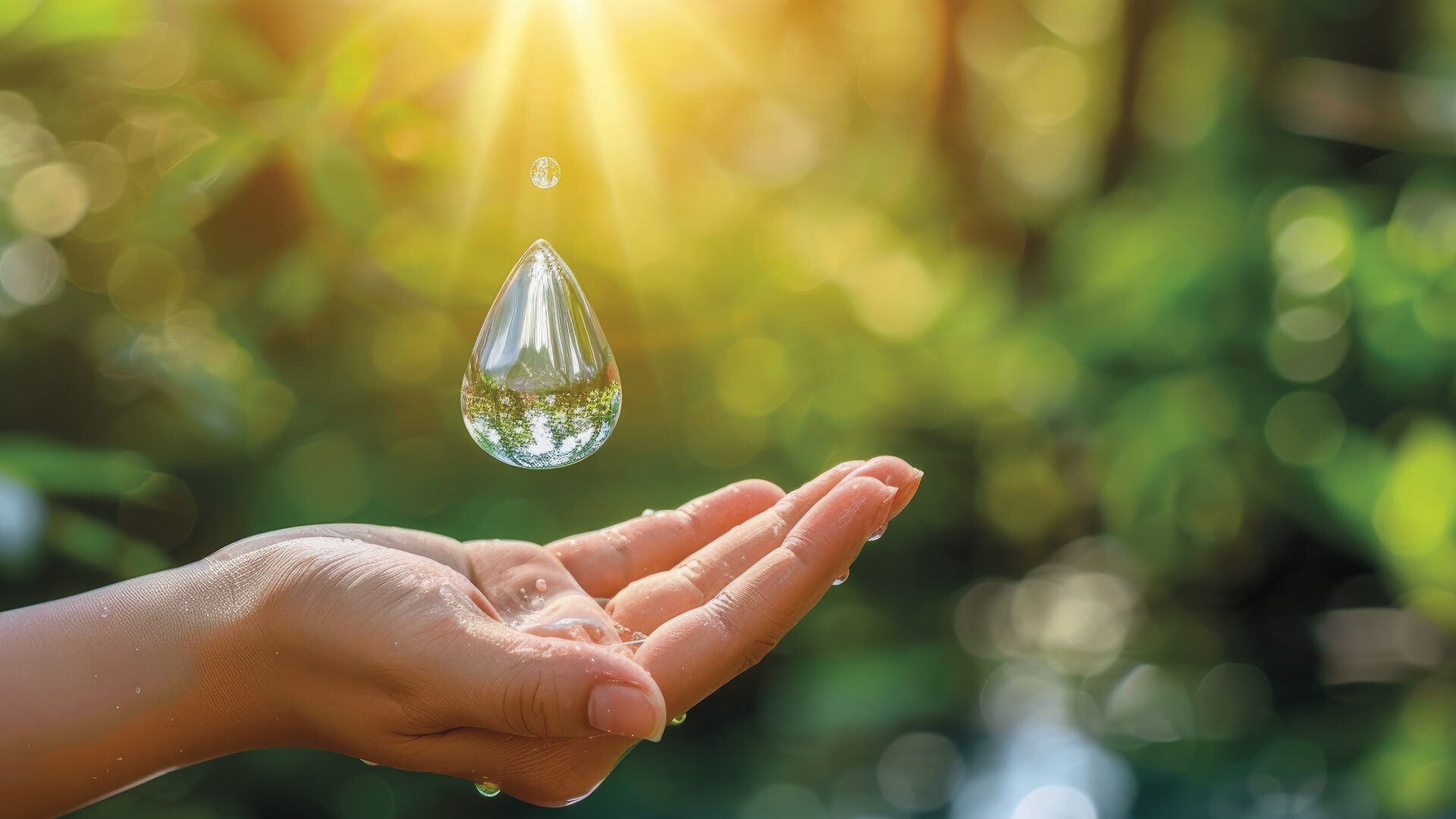By PDG John Kevan
Rotary Club of Mandurah Districts, WA
In East Sumba, where the financial capacity to support water and health requirements for villages in remote areas is severely limited, Fair Future Foundation has been successfully providing materials and training to enable villagers to build their water and sanitation facilities for more than 15 years.
The eastern part of Indonesia still has high levels of malaria, with remoteness, lack of funding and poor basic community infrastructure preventing complete eradication of this debilitating disease.
In April 2024, a project group from the Rotary Club of Mandurah Districts flew to Sumba to inspect the many activities being carried out by Fair Future Foundation. The organisation’s water, sanitation, medical and health education projects have been supported by Rotary clubs around Australia and other international resource groups, targeting fresh water supplies and the elimination of malaria.
The current project, which will assist six remote village centres, has a total budget of $125,000 and is now halfway to completion.

PICTURED: Fair Future Foundation Founder Dr Alex Wettstein, left, meet with Rotary Club of Mandurah Districts members Adrian Russell, Bridget Jones, PDG John Kevan, Mandi McGrath, and President Peter Smith.
The Rotary Project Group visited villages, schools, water and sanitation installations, and medical centres that Rotary clubs and other donors have supported. They were warmly greeted by founder of Fair Future Foundation, Dr Alex Wettstein, and his team of enthusiastic workers, who coordinate medical interventions, construction works, malaria prevention strategies and the distribution of medicines.
Throughout the group’s eight-day visit, it was obvious that the supply of clean water, toilets and septic systems, medical supplies and health education materials have been revolutionary for these small village centres. The rate of infection and death (from all causes) has decreased.
The group also distributed soccer balls to school children, which were enthusiastically received, clothing, writing materials, and 195 SolarBuddy lights. As there is no power in most of the remote villages, these lights mean the students can now study at night.
One typical area the group visited was Laindatang, a village and school, where basic health data was collected from 75 students. Over the years thousands of villagers have been examined and diseases identified and treated. This data is sent to the Regional Health Service.
“Clean water is the best medicine. By providing water connections, malaria prevention strategies, health education materials and training in a targeted approach, outstanding results have been achieved.”

PICTURED: One of the most positive and beneficial innovations by Fair Future Foundation is the provision of Primary Medical Care Boxes to remote villages.
Water was found near this group of villages and pumped to a high tank and distributed by gravity to smaller villages, enabling toilets and septic tanks to be constructed. More than 50 ferro cement tanks have been built by experienced local villagers, who pass their skills onto the next village. More than 30 kilometres of poly piping has been laid to distribute the water.
Hand basins have been installed at the school, with all students encouraged to wash their hands. Now, regular classes are held to explain the various malaria prevention methods, general health care and eating nutritious local food. The resources for these programs are provided to Fair Future Foundation by Rotary.
One of the most positive and beneficial innovations by Fair Future Foundation is the provision of Primary Medical Care Boxes to remote villages. Senior women from these villages are trained in First Aid and basic health education. They use the medicines, bandages, ointments, etc., to treat simple injuries and prevent infection. The boxes are refilled when volunteers revisit the villages.

PICTURED: The supply of clean water, toilets and septic systems, medical supplies and health education materials have been a revolution for Sumba’s small village centres. Hand basins installed at schools encourage all students to wash their hands.
This Rotary-supported project will continue to supply these medical boxes to provide immediate health support at the village level, where there is no other access to medical care. To further assist health outcomes, the Rotary Project Group arranged for the immediate distribution of descriptive posters showing healthy foods and constant health awareness, including malaria prevention, to all schools and public buildings in East Sumba.
- This distribution was supported by the Governor of the Eastern Regency and his wife.
- While much has been achieved, there is still a lot of work to do in many remote areas.
- The number of people infected with malaria in East Sumba is extremely high.
- There is a low level of knowledge about malaria infection and how to prevent it.
A lack of facilities and tools delay the early detection of malaria infection. - A lack of clean water and sanitation facilities; some villagers are still hand-carting water.
There are extensive poor living conditions and limited access to medical assistance.
The Rotary Project Group returned home with a better understanding of the ongoing critical needs of villagers living in a poor subsistence environment, without basic services, in the remote areas of East Sumba.
Rotarians will continue to support the Fair Future Foundation in East Sumba.
Clean water is the best medicine. By providing water connections, malaria prevention strategies, health education materials and training in a targeted approach, outstanding results have been achieved.

You or your club can be part of this positive, effective and life-saving project. For more information contact John Kevan via 0419 947 862 or [email protected].
Tax deductible donations can be made via rawcs.org.au (Project No.10-2023-24).
